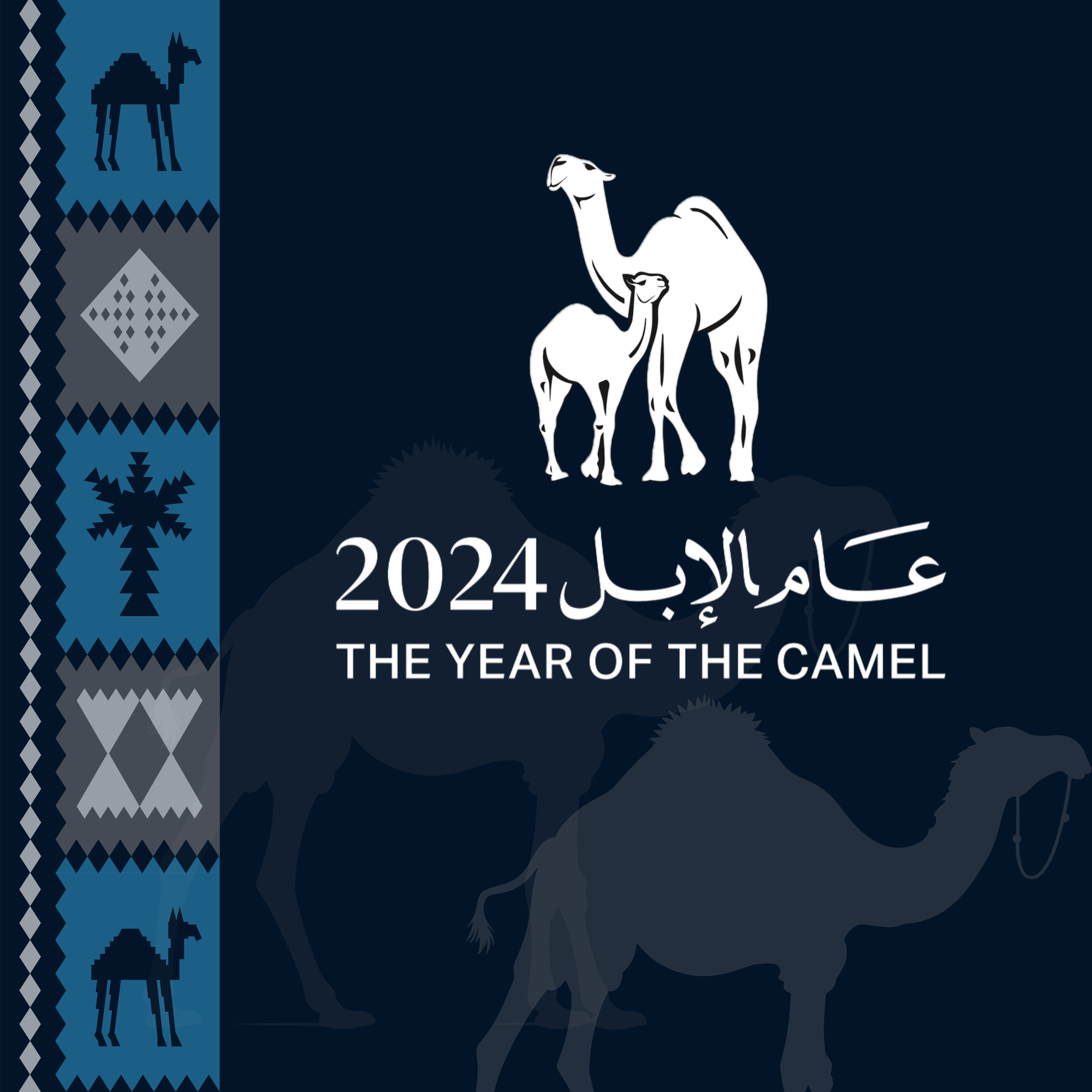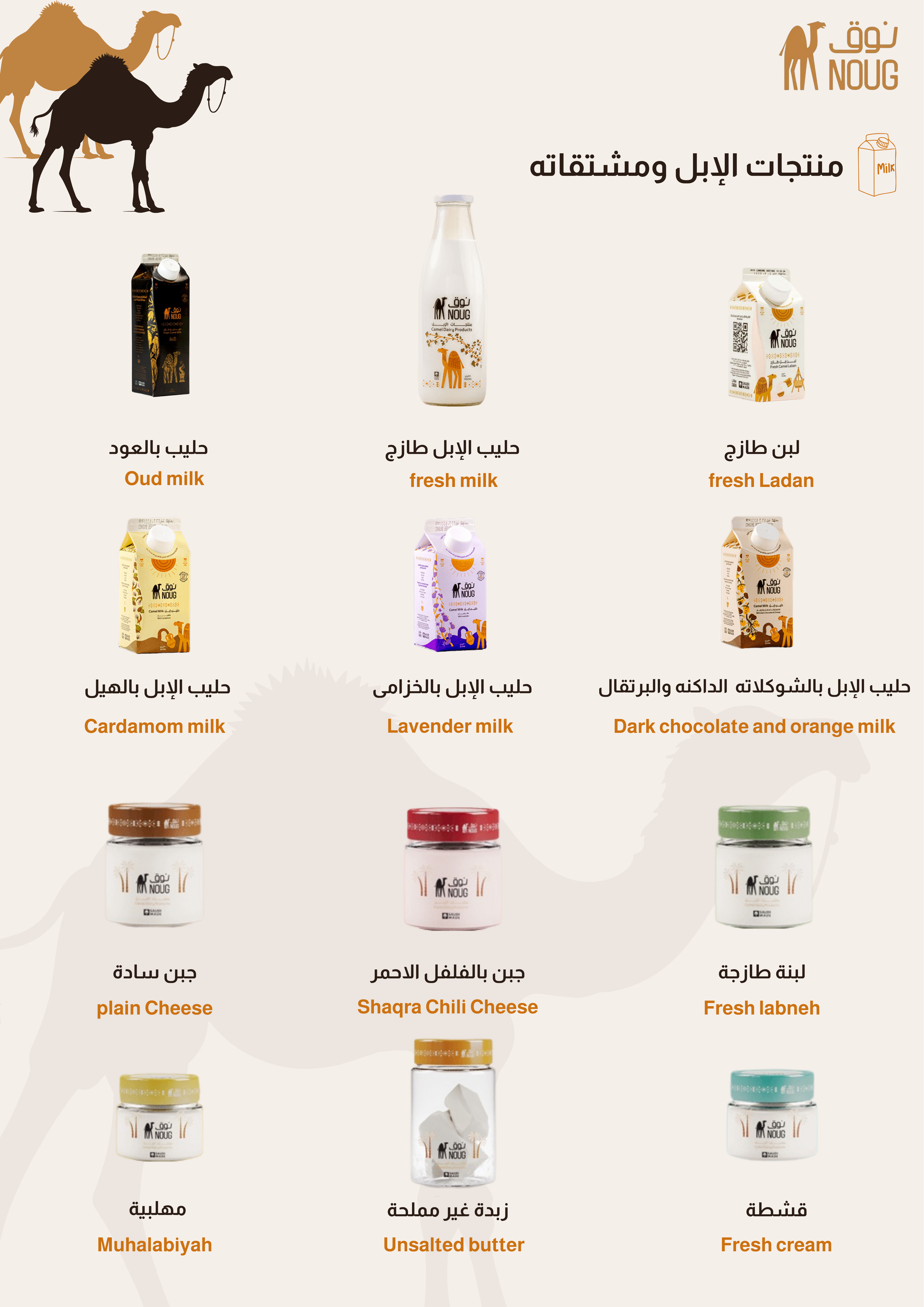The Kingdom's investments in the camel sector

Camels carry within them deep-rooted stories and traditions, reflecting important aspects of our popular life and cultural authenticity. By highlighting this important heritage aspect, we can enhance global awareness of our culture and deepen the international community's understanding of our values and traditions.
The Kingdom's vision for 2030 revolves around developing various sectors and utilizing available resources to enhance the economy, culture, and sustainable development. In this context, camels can play a significant role in achieving this vision, as they possess unique advantages that enable them to adapt to surrounding conditions and meet the needs of the global market, benefiting the local economy and contributing to community development.
Camel Year 2024:
The year 2024 was named "Camel Year" to celebrate the unique cultural value represented by camels in the lives of the Arabian Peninsula's inhabitants, solidifying their entrenched status and enhancing their presence locally and internationally as a genuine cultural heritage and an essential component in civilizational development. Camels played a vital role in unifying Saudi Arabia during the reign of King Abdulaziz bin Abdul Rahman - may God have mercy on him - who relied on them, along with his men, for transportation, sustenance through their meat and milk, and for carrying water, equipment, weapons, and men, as well as in delivering mail in a desert environment stretching over vast expanses of sand and harsh climatic conditions. They participated in all his battles and campaigns to unify the Kingdom of Saudi Arabia, with the flags of unification flying on their backs.
Camel Specifications:
The mention of camels in the Noble Quran exceeds that of any other animal due to their status and numerous benefits. God made their creation a challenge, lesson, and sign for His servants, inviting people in general, and with a poignant interrogative expression, to ponder over their creation and composition. God, glorified and exalted be He, says: "Do they not look at the camels, how they are created?" (Quran, Surah Al-Ghashiyah, 88:17). Despite their extreme strength and endurance, they yield to heavy loads, submit to weak leadership, provide meat and milk for consumption, and their dung is used, and their milk is drunk.
Kingdom's Contributions to the Camel Sector:
There are numerous contributions aimed at reviving this heritage with support from the Kingdom of Saudi Arabia:
• Camel Club:
In 2017, a royal decree was issued to establish the Camel Club, and His Royal Highness Crown Prince Mohammed bin Salman is the general supervisor of the Camel Club, and its board of directors is chaired by Sheikh Fahad bin Falah bin Hathin. The Camel Club aims to:
Supporting the Arab heritage in camel care and developing it in a way that suits our current generation.
- Preserve this heritage and show it to the world, by introducing camels and their association with the history of the Kingdom.
- Organizing specialized events involved in camels locally and internationally and participating in foreign events as a national representative.
- Establishing and organizing camel auctions.
- Managing sites, fields and reserves specialized in camels locally and conducting specialized studies and research.
• The King Abdulaziz Camel Festival is one of the major events under the shadow of the Camel Club and under their supervision and organization:
It is an annual festival held in the Kingdom of Saudi Arabia under royal patronage, which aims to root the camel heritage and promote it in Saudi, Arab and Islamic culture, and provide a cultural, tourist, sports, entertainment and economic destination for camels and their heritage. As a result of this festival, many accompanying events are held with the aim of providing an integrated economic system in terms of auction, supplies and camel-related industries, and developing the returns of the community and those interested in this authentic Arab heritage.
• Sawani Company:
The Public Investment Fund, as a sovereign entity leading the investment and development scene in the Kingdom, announced the launch of the Sawani Company specialized in the production, supply, marketing, and sale of camel milk products and derivatives, offering them to the Saudi market as a pioneering investment project aimed at empowering the camel milk sector and establishing a strong industry providing high-quality products enriching the local market and meeting the needs of the global market through strategic partnerships with the public and private sectors. The "Nouq" store affiliated with the Sawani company was launched to offer products that add value to the sector and contribute to diversifying the national economy in line with the Public Investment Fund's strategy, which focuses on launching and empowering promising sectors in the Kingdom, including the food sector, in addition to enhancing the Kingdom's efforts to diversify income sources in line with the objectives of Vision 2030 and its ambitious aspirations.

In conclusion, investing in the camel sector is an important step towards promoting sustainable development and consolidating the cultural and economic identity of the Kingdom of Saudi Arabia. By supporting initiatives and projects to develop this sector, we can enhance economic diversity and strengthen cultural and economic ties with the international community. The Kingdom's investments in the camel sector reflect its commitment to cultural and economic heritage and enhance its role as a key player on the global stage, contributing to building a bright and prosperous future for all.
Prepared by:
- Lamia Fawzan Almadhi
- Hessa Abdullah Aljomyl
Resources:
- The Book of Camels (Names, Descriptions and Characteristics), Fawzan Hamad Almadhihttps://www.jarir.com/arabic-books-610038.html
- https://aawsat.com/العالم-العربي/الخليج/4738781- "Year of the Camel-2024"-Celebrating the cultural heritage and emphasizing its status#